Publications
Articles, publications, books, tools and multimedia features from the U.S. Institute of Peace provide the latest news, analysis, research findings, practitioner guides and reports, all related to the conflict zones and issues that are at the center of the Institute’s work to prevent and reduce violent conflict.
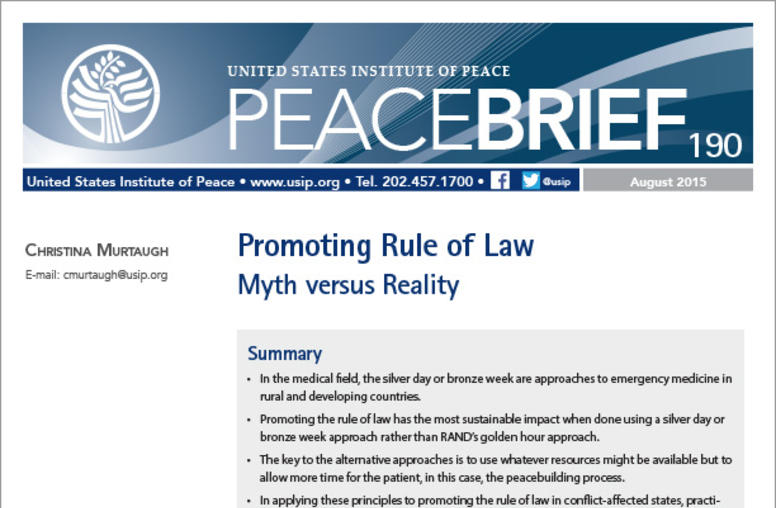
Promoting Rule of Law: Myth Versus Reality
Rule of law has long been a key international concern, especially for conflict-affected countries, and promoting it is a critical challenge to the international community. This Peace Brief focuses on the misconceptions of what is called the golden hour approach to offer more practicable alternatives. The issue is focus—whether to find a solution among Western paradigms or to empower people, support sustainable change, and provide enough time for the people to act and the process to unfold on ...
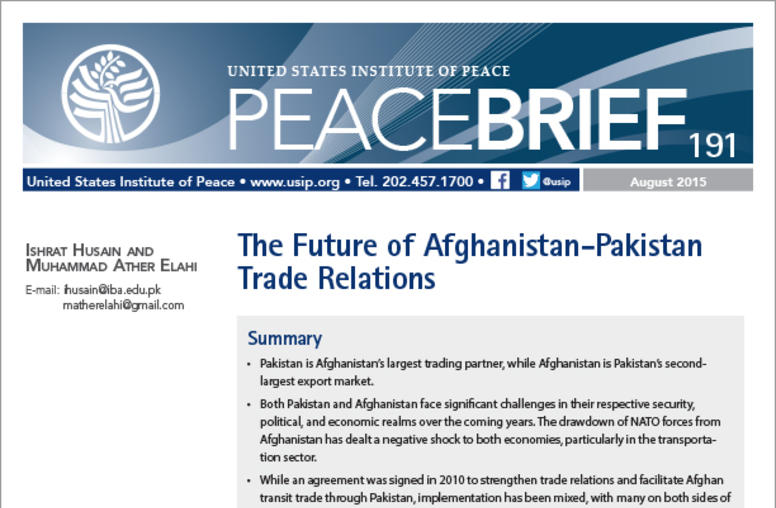
The Future of Afghanistan-Pakistan Trade Relations
Pakistan and Afghanistan are among each other’s largest trading partners. Though an agreement was signed in 2010 to strengthen trade relations and facilitate Afghan transit trade through Pakistan, implementation has been mixed, with many on both sides of the border complaining of continued barriers to exchange. Both nations need to improve trade facilitation through streamlined payments settlement and improved insurance mechanisms, the use of bonded carriers, visa issuance, trade financing, t...
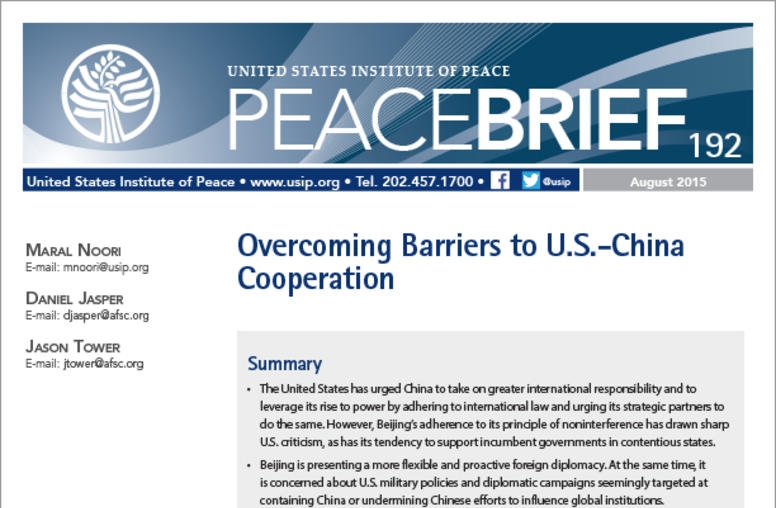
Overcoming Barriers to U.S.-China Cooperation
In 2011, U.S. president Barack Obama announced plans to "pivot" toward Asia. In 2012, Chinese president Xi Jinping expressed his hope for "a new type of relationship" with the United States. A lack of strategic trust between the two countries, however, prevents critically needed productive cooperation. This Peace Brief addresses the misunderstandings behind this mistrust and a possible way to move beyond them.
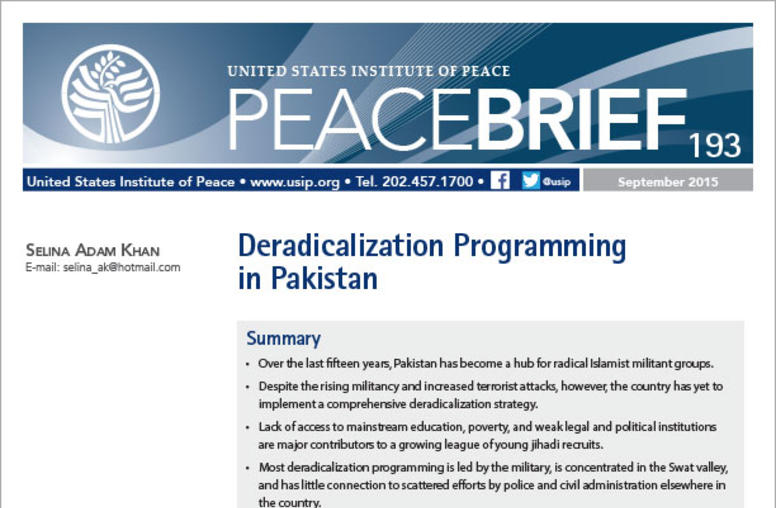
Deradicalization Programming in Pakistan
The December 2014 terrorist attack in Peshawar that killed 132 schoolchildren forced Pakistan to acknowledge the extent of its ongoing problem with radical Islamist militancy. Islamabad, however, has yet to implement a comprehensive deradicalization strategy. In January 2015, it took a formal step in this direction with its twenty-point National Action Plan in response to the Peshawar attack—a step, but only a first step. If deradicalization is to meet with any success in Pakistan, the nation...
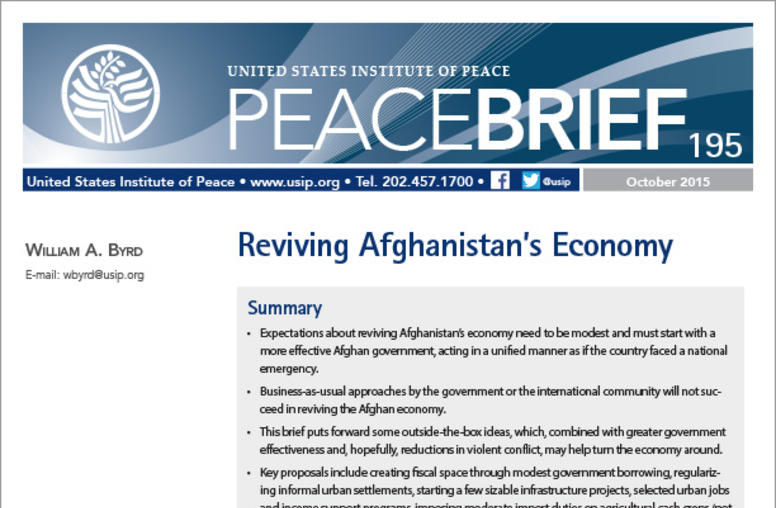
Reviving Afghanistan's Economy
Some say reviving the Afghan economy in a time of intensifying violent conflict and declining external financial inflows will be impossible. Expectations need to be kept modest, and measures must go beyond conventional economic approaches in order to be effective. This brief puts forward some outside-the-box ideas, which, combined with greater government effectiveness and, hopefully, reductions in violent conflict, may help turn the economy around.
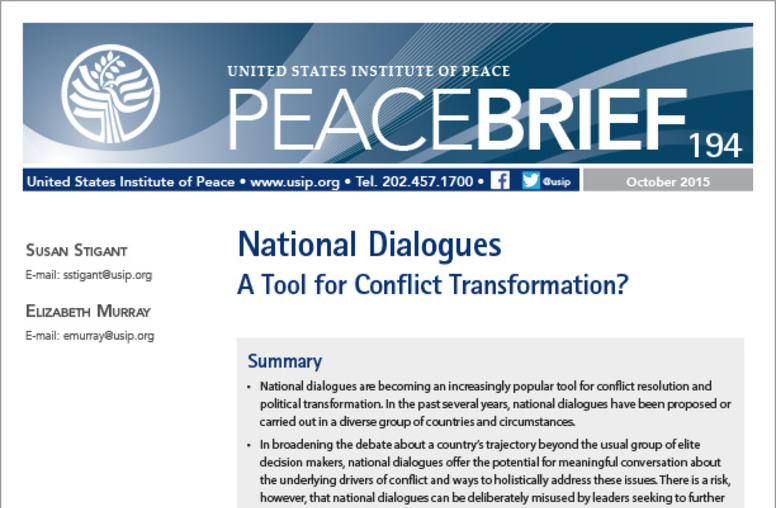
National Dialogues: A Tool for Conflict Transformation?
National dialogue is an increasingly popular tool for conflict resolution and political transformation. It can broaden debate regarding a country’s trajectory beyond the usual elite decision makers; however, it can also be misused and manipulated by leaders to consolidate their power. This brief includes principles to strengthen national dialogue processes and considerations for international actors seeking to support these processes.
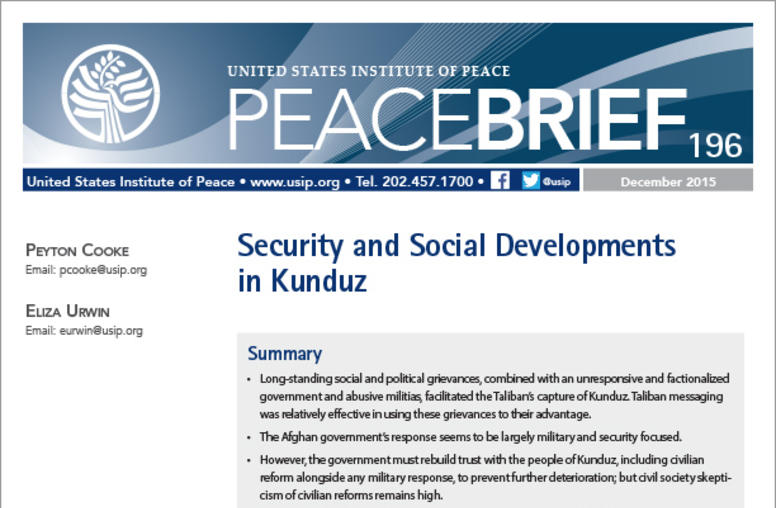
Security and Social Developments in Kunduz
Long-standing social and political grievances, combined with an unresponsive, factionalized government and abusive militias, facilitated the Taliban’s capture of Kunduz in September 2015. The fall of Kunduz raised questions regarding future political and security implications across the northeast region of Afghanistan. This Peace Brief highlights findings from interviews with a range of actors comparing what the government’s political and security response should look like and what it’s expec...
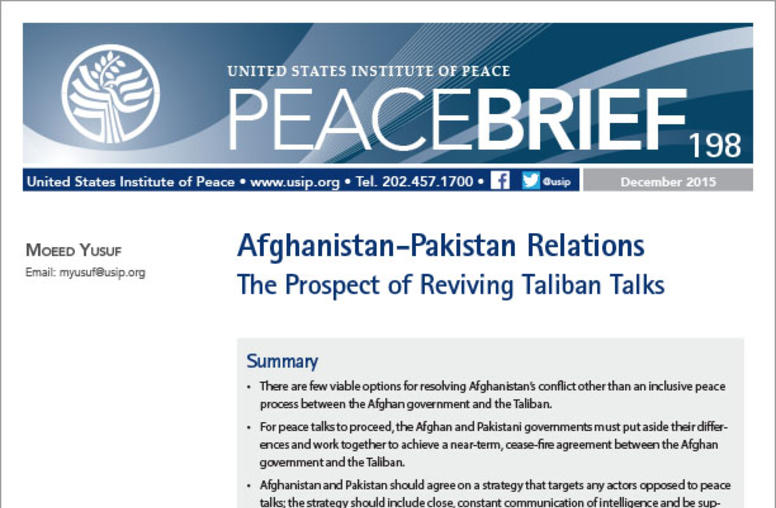
Afghanistan-Pakistan Relations: The Prospect of Reviving Taliban Talks
There are few viable options for resolving Afghanistan’s conflict other than an inclusive peace process between the Afghan government and the Taliban. Momentum toward this goal must be maintained following the “Heart of Asia” Ministerial Conference on December 9, 2015, where Afghan, Pakistani, and U.S. officials renewed their commitment to resuming dialogue. This brief discusses three key concerns that need to be addressed to effectively move the peace process forward and achieve a near-term ...
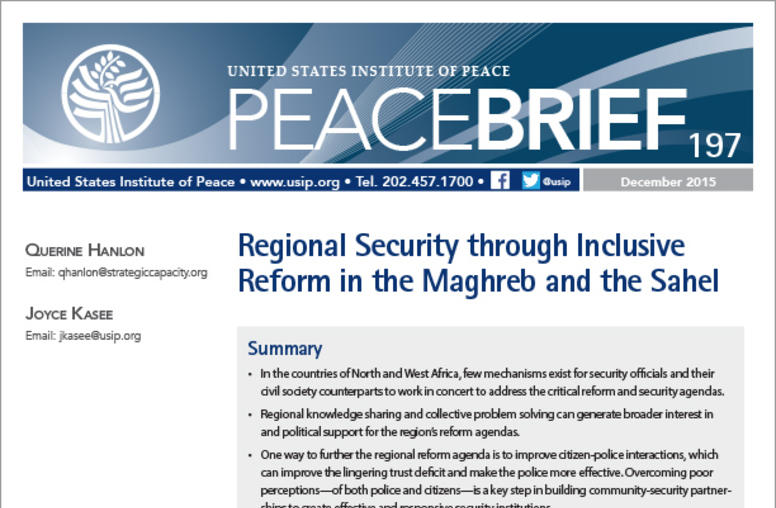
Regional Security through Inclusive Reform in the Maghreb and the Sahel
Throughout the Maghreb and the Sahel, governments are struggling to manage a security environment fundamentally transformed by the Arab Spring. Within this region, the efforts of governments to secure their territories and civil society organizations to create accountable and transparent security institutions have proceeded almost wholly divorced from each other. This Peace Brief shares key insights from the engagement between official and civil society actors both within and across borders t...
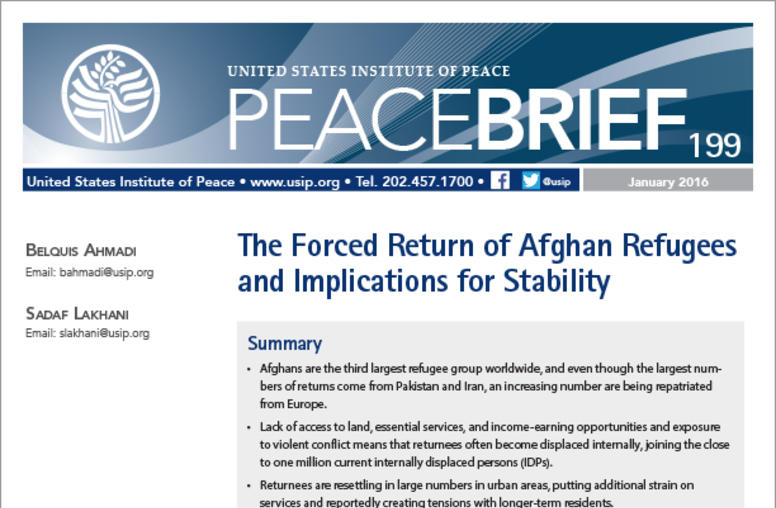
The Forced Return of Afghan Refugees and Implications for Stability
Afghan refugees have been returning home from Pakistan and Iran in growing numbers, and many of these returns have been involuntary. The situation is adding stress to an already challenging environment, characterized by insecurity, lack of access to employment and services, land and housing tensions, and rapid urbanization. This brief presents important considerations for developing a clear, well-coordinated strategy that addresses the impacts of large-scale returns and the specific needs of ...